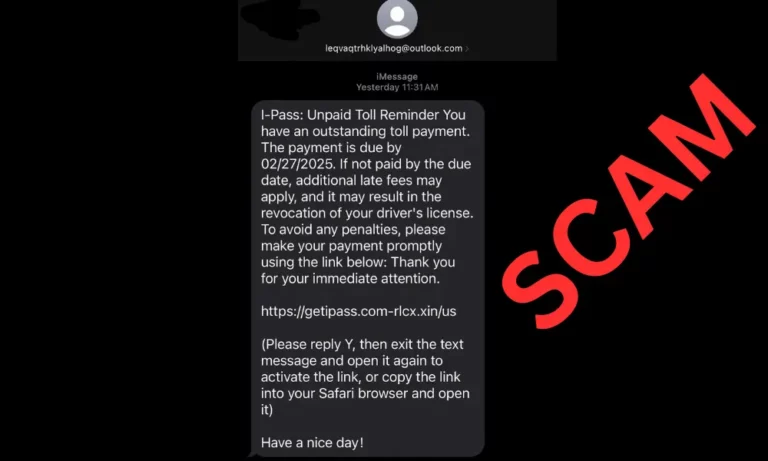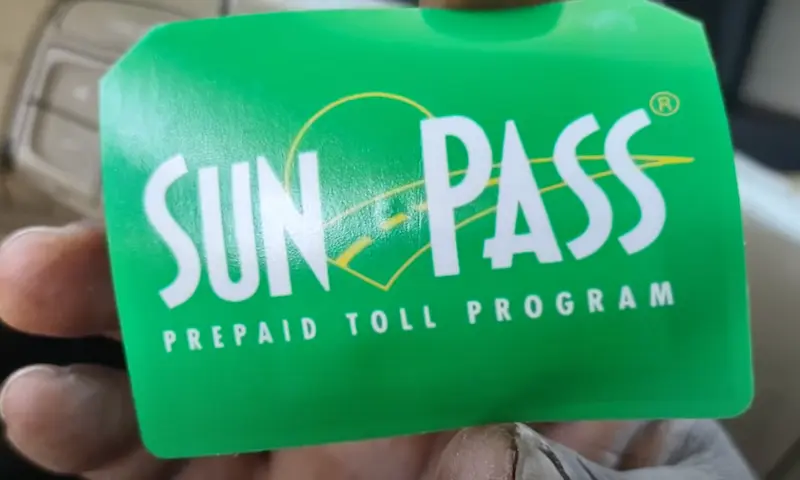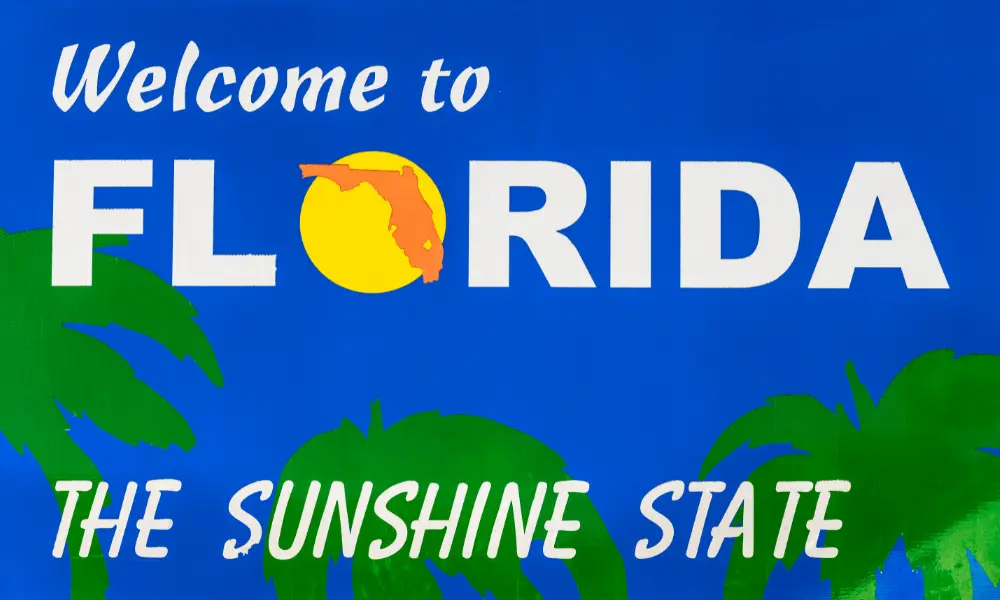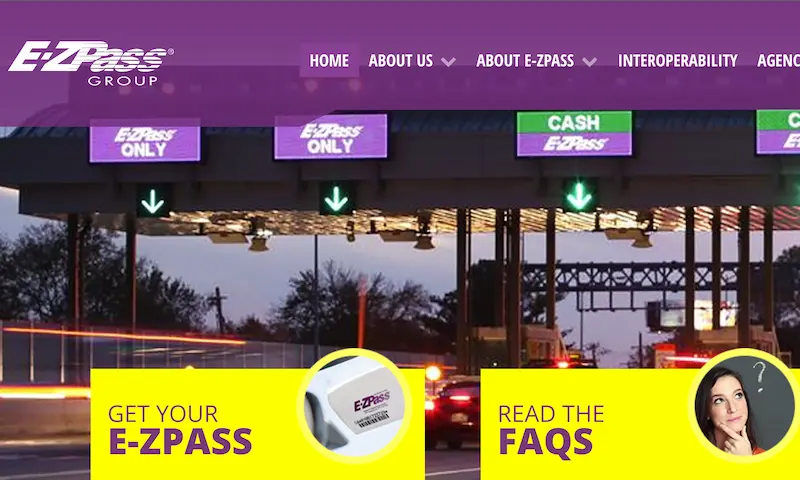You just got a text about an unpaid I-PASS toll. It’s urgent—pay now or face penalties! Your heart races as you click the link… Wait! Before you do anything else, you might be falling for one of the most widespread scams targeting Illinois drivers today.
What Is the I-PASS Text Scam?
The I-PASS text scam involves fraudsters sending fake messages claiming to be from the Illinois Tollway. These texts tell you that you have an unpaid toll balance and need to make an immediate payment to avoid penalties like license suspension or hefty fines.
These scammers are getting increasingly sophisticated. What started as generic messages in early 2024 has evolved into personalized texts that might include details like:
- Specific dollar amounts (often around $12-$15)
- Fake deadlines (“pay within 24 hours”)
- References to specific highways or exit numbers
- Professional-looking graphics and formatting
How to Identify an I-PASS Text Scam
These scams rely on creating panic so you’ll act quickly without thinking. Here are the telltale signs that text is fraudulent:
The Sender’s Number
Legitimate Illinois Tollway communications won’t come from:
- International phone numbers (especially those starting with +44 or +63)
- Random area codes not associated with Illinois government
- Generic sender names like “Toll Services”
The Message Content
Red flags in the message itself include:
- Urgent deadlines (usually 24-48 hours)
- Threats of severe penalties
- Grammatical errors or awkward phrasing
- Requests for sensitive information
The Link
Perhaps the biggest giveaway is the link you’re asked to click:
- Hovering over it reveals domains unrelated to the official Illinois Tollway
- Often uses URL shorteners to hide the actual destination
- May include suspicious domains like “.xin” or “.xyz” instead of “.gov” or legitimate “.com”
According to the BBB, one victim reported: “The site looked so professional I nearly entered my payment details before noticing the strange web address.”
Real vs. Fake I-PASS Communications
| Feature | Legitimate I-PASS | Scam Messages |
|---|---|---|
| Sender | Official channels like getipass.com | Random phone numbers, often international |
| Payment requests | Through official website or mail | Via suspicious links in text messages |
| Tone | Professional, no urgent threats | Creates panic with immediate deadlines |
| Links | Official Illinois Tollway domains | Suspicious domains, URL shorteners |
| Contact info | References official phone numbers | Often lacks verifiable contact information |
The Illinois Tollway has explicitly stated that they never request sensitive information via text message.
What Makes These Scams So Effective?
The I-PASS text scam works because it exploits basic human psychology:
Fear of Consequences
Nobody wants license suspension or legal troubles. The scammers create false urgency that bypasses your critical thinking. When you’re worried about consequences, you’re more likely to act hastily.
Appearance of Legitimacy
Modern scammers use professional-looking websites that mimic official tollway portals. Some even include the I-PASS logo and branding elements stolen from legitimate sites.
Targeted Approach
These scams often target people in areas with high toll road usage. If you regularly use tollways, a message about unpaid tolls seems plausible.
Real-Life Impact of the I-PASS Scam
The damage from falling for these scams goes beyond just the immediate financial loss:
- Victims report charges ranging from $12 to $150
- Scammers gain access to credit card information and sometimes identity details
- Many victims experience identity theft issues months after the initial scam
- Trust in legitimate electronic toll systems is undermined
A Reddit user shared: “I almost paid it because I do use I-PASS and thought maybe I missed a payment. The website looked so real that I had my card in hand before something felt off.”
How the Scam Has Evolved
The sophistication of these scams has increased dramatically:
Early Versions (2024)
Basic text messages with generic claims about unpaid tolls and simple payment links.
Current Tactics (2025)
- AI-generated personalized content
- References to actual travel history
- Professional-looking payment portals
- Use of SMS spoofing technology to appear legitimate
- Geo-targeting to focus on regions with high toll road usage
What to Do If You Receive a Suspicious Text
If you get a text claiming to be from I-PASS:
- Don’t click any links in the message
- Check your official I-PASS account directly through getipass.com or the official app
- Call the official Illinois Tollway customer service at their verified number
- Report the scam to the Illinois Attorney General’s office and the FTC
- Forward suspicious texts to SPAM (7726)
How to Protect Yourself from Toll Scams
Prevention is your best defense against these sophisticated scams:
Check Your Account Regularly
Set a monthly reminder to log in to your official I-PASS account through secure channels. This way, you’ll know your actual balance and be less likely to fall for fake claims.
Verify Before Taking Action
Never click links in unexpected messages. Instead:
- Go directly to the official website by typing the URL yourself
- Call official customer service numbers listed on your I-PASS transponder or official website
- Use the official I-PASS mobile app
Enable Additional Security
- Set up two-factor authentication on your I-PASS account
- Use unique passwords for toll-related accounts
- Consider using a credit card monitoring service
Stay Informed
Follow the Illinois Tollway’s official social media accounts and check their website for alerts about current scams.
Broader Context: Similar Scams Nationwide
The I-PASS scam isn’t unique to Illinois. Similar phishing attempts target toll systems across the country:
- Florida’s SunPass
- Georgia’s Peach Pass
- New York’s E-ZPass
- Texas’s TxTag
The Federal Trade Commission has issued warnings about these nationwide toll scams, noting a 200% increase in reports during 2024 alone.
How Officials Are Fighting Back
The Illinois Tollway has implemented several countermeasures:
- Public awareness campaigns with detailed scam indicators
- Mandatory two-factor authentication for online accounts
- Partnership with carriers to block texts from known scam numbers
- Collaboration with cybersecurity firms for real-time threat monitoring
Attorney General Kwame Raoul’s office has pursued legal action against domain registrars hosting these phishing sites under Illinois’ Consumer Fraud Act.
Common Questions About I-PASS Text Scams
How can I check if I actually have unpaid tolls?
The only reliable way to check your I-PASS balance is through the official website or by calling Illinois Tollway customer service directly.
I clicked a link from a suspicious text. What should I do now?
- Don’t enter any information on the site
- Close the browser immediately
- Run a security scan on your device
- Monitor your accounts for suspicious activity
- Consider changing passwords for important accounts
- Report the incident to your bank and the FTC
How do scammers get my phone number?
Scammers obtain phone numbers through:
- Data breaches
- Public records
- Social media
- Mass messaging to area codes in regions with toll roads
- Purchased contact lists from third parties
Will the Illinois Tollway ever text me about my account?
The Illinois Tollway may send text alerts if you’ve opted in, but they will never:
- Ask for payment through a text message link
- Threaten immediate penalties via text
- Request sensitive personal information by text
The Technology Behind the Scam
Understanding how these scams work technically can help you spot them:
SMS Spoofing
Scammers use specialized software to make texts appear to come from legitimate sources. This technology allows them to mask their actual phone numbers.
Phishing Websites
The fake payment portals are designed to look identical to legitimate sites. They capture your payment information and sometimes install malware on your device.
Data Harvesting
Beyond stealing your money, many of these scams collect personal data that can be sold on the dark web or used for identity theft.
The Psychological Tactics at Play
These scams employ specific psychological triggers:
Authority Pressure
By impersonating a government agency, scammers exploit your natural tendency to comply with authority figures.
Scarcity of Time
Creating artificial deadlines (“pay within 24 hours”) pressures you to act before you can verify the message’s legitimacy.
Fear of Missing Out
Offers to “avoid penalties” appeal to your desire to prevent negative consequences, making you more likely to click.
Remember: legitimate organizations don’t create panic to get payments. If a message makes you feel anxious or rushed, that’s a major red flag.
The I-PASS text scam continues to evolve, but staying informed and verifying communications through official channels remains your best defense. By understanding the tactics these scammers use, you can protect yourself and your finances from this growing threat.
















